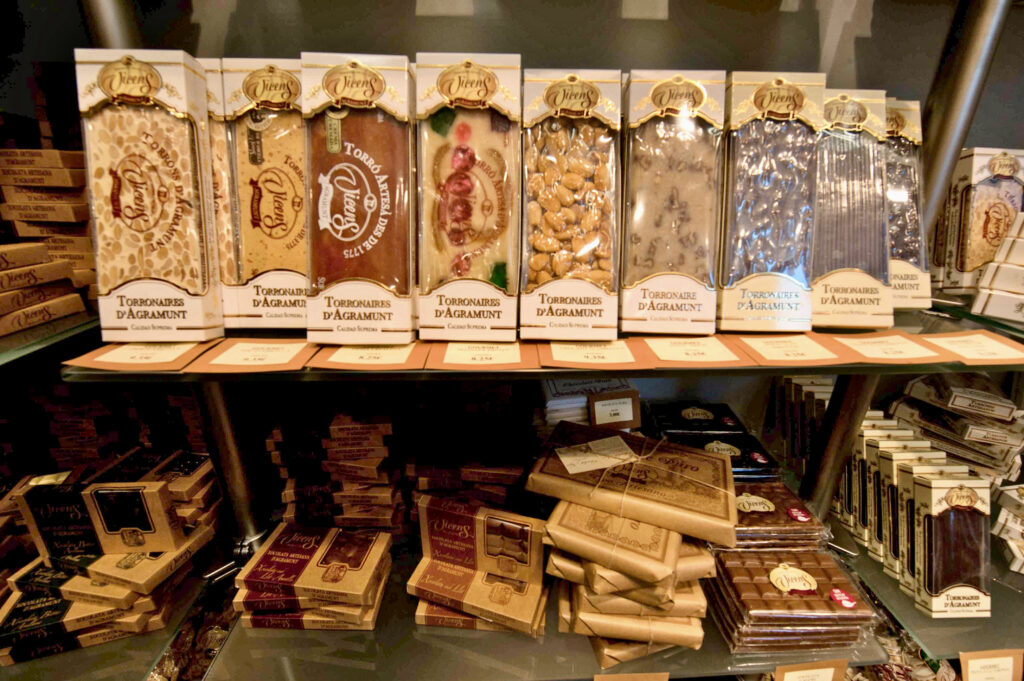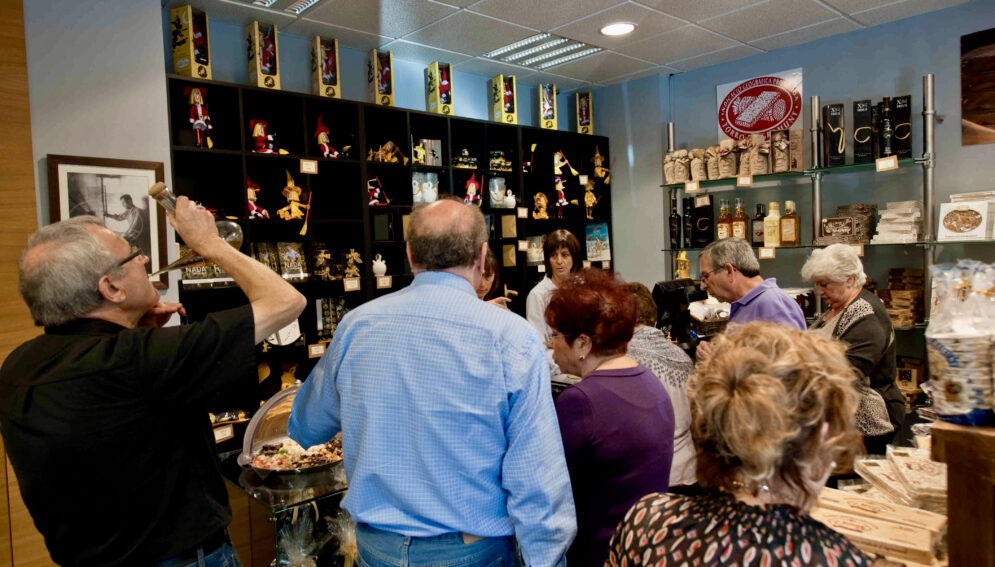
Nougat shop in Sort (company photo)
ABSTRACT
Many companies could leave the crisis behind them if only they could tap customer’s imagination, since, scientifically speaking, imagination is more powerful than reality to boost sales.
This Summer in Sort *, a village of 2,000 inhabitants that nestles in the Catalan Pyrenees, a shop specialized in nougats (turró), opened.
Common sense
This business initiative lacks of common sense, which has a link to the oldest part of our brain, and where all the knowledge gathered by our tribe throughout the years, lies. That is the way things are because experience has shown it yields the best results.
Who would eat an elaborated sweet -which is not exactly light- in the middle of the hot summer? In fact, statistics show that nougat sales are stubbornly seasonal. And after all, that is what the figures are for: to listen to them.
So who in his sane mind would open a nougat shop in a bad communicated mountain village, and in summer?
The strange beauty of the paradox
According to the New Oxford American Dictionary, a paradox is “a statement or proposition that, despite sound reasoning from acceptable premises, leads to a conclusion that seems senseless, logically unnaceptable or self-contradictory”. In other words, it breaks with common sense. Taking such risks seems foolhardy in the midst of the current financial meltdown.
Xavier Gabriel, owner of Bruixa d’Or [Gold Witch] -a well known Spanish lottery agency- with his entrepreneurial instinct, thought things could be different.
Instead of selling ice cream and beer in Summer -something that is logical, perhaps too logical- , he thought he could boost ticket sales and at the same time extend the good time his customers have when buying lottery, by giving them a very nice gift-coupon to try some free nougat at his recently opened nougat shop, located 12 meters down the street.
His clients are not only French (who eat nougats all year round) but mostly Spaniards. Over 20,000 customers visited the shop this summer. When they come in, they can try seven kinds of nougat for free and wash it all down with a flask of sweet wine. Having a great time is guaranteed, and since the product is of great quality, most of the people end up buying something.
The shop is impeccably laid out and decorated, mime and good vibes are felt, and the shelves are always full. The nougats are complemented with Bruixa d’Or’s merchandise, such as witches brooms and little witches.
Three staff have been hired to run the shop (one in July, one more in August and a third one in September). They are well-paid because the shop opens seven days a week, holidays included. Gabriel takes care of his staff: “Things work when the team is smiling, motivated, well-paid and feels the business as its own”.
Before setting up the shop, Gabriel signed a deal with nougat supplier Turrons Vicens, from Agramunt, who supplies all the assortment and does the stocking. In this sense, Turrons Vicens more than a supplier, is a business partner.
Learning, not recipes
(1) Is vital to grasp the contexts in which clients are found.
In this case, customers arrive in the Summer (not in nougat season), but they get the coupon when buying Christmas lotto (related with nougats season). In customers’ minds, buying lottery tickets, nougats and cava (Catalan “champagne”) have very strong Christmas connotations. Many companies could leave the crisis behind if only they could tap customers’ imagination, since scientifically speaking, imagination is more powerful than reality to boost sales.
(3) Take a calculated risk when innovating. It is worth to allocate all the required budget to ensure the pilot shop fully embodies and validates the concept. If the R&D project fails, the amount lost should not threaten the company’s survival. Therefore, there should not exist the fear of failure.
Manager’s development can go through three stages:
1) Learn the rules of the game.
2) Find out how to win the game.
3) Re-invent the game.
Many who reach the second stage, move to a mental retirement.
Xavier Gabriel, is one of the enterprising souls who has reached the third stage. He has just launched his book “Nada es imposible” [Nothing is impossible] (2011, collection Alienta, 168 pp.), which sets out 111 “rules” and approaches that he uses in his entrepreneurial activities. This book is full of paradoxes.
(*): Translator’s note: ‘Sort’ also happens to mean ‘luck’ in Catalan. Add to this the fact that several highly publicised lottery-winning tickets have been sold at the Bruixa d’Or and it becomes clear why the agency draws punters from all over Spain. ‘The Gold Witch’ also uses the Internet to sell.
_______________
Lluis Martinez-Ribes
Source: Código 84, October 2011, pages 212-213 (Burbujas de Oxígeno)




